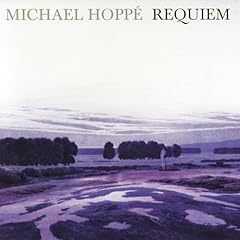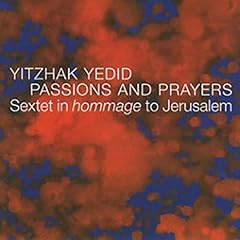| Record companies, artists and publicists are invited to submit CDs to be considered for review. Send to: Jerry Bowles, Editor, Sequenza 21, 340 W. 57th Street, 12B, New York, NY 10019 |
Latest Posts
Ernst Pepping and Allan Pettersson: Moral Dilemmas in Symphonic Music
"The numbers all go to eleven. Look, right across the board, eleven, eleven, eleven and... "
Tell the Birds
Soundtrack to an Apocalypse
Feast Your Ears: New Music for Piano
Gone For Foreign
Fred Lerdahl: Time After Time
Nothing Sacred
Two From Wayne Horvitz
Two Fresh Cantaloupes
Record companies, artists and publicists are invited to submit CDs to be considered for our Editor's Pick's of the month. Send to: Jerry Bowles, Editor, Sequenza 21, 340 W. 57th Street, 12B, New York, NY 10019



|
Archives
Saturday, December 18, 2004
Saturday, December 25, 2004
Friday, December 31, 2004
Wednesday, January 05, 2005
Monday, January 10, 2005
Thursday, January 13, 2005
Thursday, January 20, 2005
Sunday, January 23, 2005
Monday, January 24, 2005
Saturday, January 29, 2005
Wednesday, February 02, 2005
Thursday, February 03, 2005
Monday, February 07, 2005
Tuesday, February 08, 2005
Friday, February 11, 2005
Monday, February 14, 2005
Wednesday, February 16, 2005
Tuesday, February 22, 2005
Monday, February 28, 2005
Sunday, March 06, 2005
Monday, March 07, 2005
Wednesday, March 09, 2005
Sunday, March 13, 2005
Friday, March 18, 2005
Monday, March 28, 2005
Saturday, April 02, 2005
Monday, April 11, 2005
Sunday, April 17, 2005
Tuesday, April 19, 2005
Monday, April 25, 2005
Monday, May 02, 2005
Monday, May 09, 2005
Tuesday, May 17, 2005
Tuesday, May 31, 2005
Monday, June 06, 2005
Thursday, June 16, 2005
Sunday, June 19, 2005
Sunday, July 10, 2005
Wednesday, July 13, 2005
Sunday, July 24, 2005
Friday, July 29, 2005
Monday, August 08, 2005
Monday, August 22, 2005
Wednesday, August 24, 2005
Friday, September 16, 2005
Sunday, September 25, 2005
Tuesday, October 04, 2005
Tuesday, October 18, 2005
Monday, October 24, 2005
Tuesday, November 01, 2005
Monday, November 07, 2005
Saturday, November 12, 2005
Wednesday, November 16, 2005
Tuesday, November 29, 2005
Friday, December 16, 2005
Monday, January 09, 2006
Thursday, January 12, 2006
Thursday, January 19, 2006
Tuesday, January 24, 2006
Thursday, February 02, 2006
Monday, February 13, 2006
Wednesday, February 15, 2006
Wednesday, March 01, 2006
Sunday, March 19, 2006
Sunday, March 26, 2006
Friday, March 31, 2006
Sunday, April 09, 2006
Monday, April 10, 2006
Thursday, April 20, 2006
Friday, April 21, 2006
Thursday, May 11, 2006
Thursday, May 18, 2006
Saturday, May 20, 2006
Friday, June 02, 2006
Tuesday, June 06, 2006
Friday, June 16, 2006
Monday, June 19, 2006
Sunday, June 25, 2006
Monday, June 26, 2006
Monday, July 10, 2006
Thursday, July 13, 2006
Thursday, July 20, 2006
Friday, July 21, 2006
Sunday, July 23, 2006
Thursday, August 03, 2006
Wednesday, August 09, 2006

|
|
Monday, June 26, 2006
Nothing Sacred

Requiem
Michael Hoppé
Heidi Fielding: soprano; Dwain Briggs: tenor; Chris Bleth: oboe; Martin Tillmann: cello; Bernadette Allbaugh: clarinet; Alyssa Park: violin; Lilly Hayden: violin; Michael Hoppé: keyboards.
Hearts of Space 2-HOS-11418

Passions and Prayers: Sextet in Hommage to Jerusalem
Yitzhak Yedid
Alon Reuven: French horn; Orit Orbach: clarinet, bass clarinet; Yaron Ouzana: trombone; Galia Hai: viola; Ora Boasson Horev: double bass; Yitzhak Yedid: piano.
Between the Lines BTLCHR-71207
Composers Michael Hoppe and Yitzhak Yedid have each delivered a work that takes a fresh approach toward sacred themes; though vastly different in execution, both pieces emphasize the restorative potential of music.
Over two thousand Requiems have been written, with each reflecting the unique sensibility of its composer. Thus, Mozart’s work is highly melodic, if foreboding; Verdi’s Requiem is dramatic and operatic; and the Berlioz effort is wildly ambitious in scope and orchestration. Given the spiritualist bent of the New Age genre, it is only fitting that one of its practitioners would try his hand at a Requiem, and that is precisely what Michael Hoppé has done.
Taking the subject matter into account, Requiems tend to be dark and brooding works; Hoppé takes a different route, gleaning from the liturgical text only passages that are calm and comforting. His soft, soothing music creates a sense of inner peace, the apparent goal of most New Age recordings. However, those who are unresponsive to the genre may be frustrated by Requiem’s soporific melodies and minimal development.
This is not to imply that the piece is anything but a pleasant, tranquil listen; it may even prove therapeutic for those in mourning, especially if one’s preferred method of dealing with grief is to sleep through it. Otherwise, for listeners who seek a challenging religious work that arrives at a state of transcendence by exploring the complexity of human emotion, one might suggest a Requiem by Schnittke, Penderecki or, quite frankly, any other composer.
Requiem is well-performed, with fine singing by tenor Dwain Briggs and soprano Heidi Fielding, though the vibrato of the latter is sometimes a bit wide. Few observers will have difficulty questioning the sincerity of Hoppé’s work, which accomplishes everything that one would expect a New Age Requiem to achieve; that is all the motivation genre enthusiasts need to purchase the recording, and all the motivation detractors need to steer clear.
Israeli composer Yitzhak Yedid’s Passions and Prayers also puts a contemporary spin on a sacred concept, resulting in a far more challenging work. Forming a story arc around the subject of Jerusalem, its five parts illustrate the city’s turmoil while celebrating its culture; however, Passions and Prayers leans more readily toward the former, if one is to interpret “passion” in the biblical sense of “suffering.” Cacophonous dissonance abounds, and even the softest passages show signs of unease. If the piece is a reflection of Yedid’s own political outlook, he seems less than optimistic.
A sextet of predominantly Israeli musicians performs the work with sufficient emotional intensity, but they are sometimes reticent to navigate the fringes of their inhibitions. This is a lamentable fact, given that the work contains improvisational sections offering plentiful opportunities for the players to cut loose. Regardless, there are genuinely disquieting moments throughout the performance, many of them provided by the string players, violist Gaila Hai and bassist Ora Horev. Other memorable contributions come courtesy of clarinetist Orit Orbach, trombonist Yaron Ouzana, and French hornist Alon Reuven. As a pianist, Yedid displays a fondness for cluster chords and an interest in the extremes of range, making extensive use of a “rumbling” effect created on the lower register of the piano.
While there is a structural unity to Passions and Prayers, Yedid’s detailed liner notes give no indication of an explicit narrative. They do confirm that he aims to elicit specific emotional responses in the listener: the first part should create “a spirit of pervading sadness”; the second strives for a “sense of mystery”; the closing tones of the fourth part constitute a “portrayal of naivety,” and so on.
Yedid’s keen awareness of space is reflected in the atmospheric recording. Like Michael Hoppé’s Requiem, Passions and Prayers is a deeply personal work that will find a supportive audience, specialized though it may be.
posted by Brad Glanden
3:53 PM
|
|




